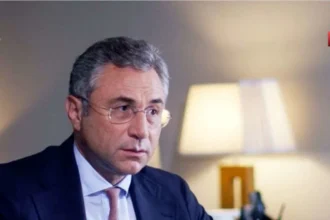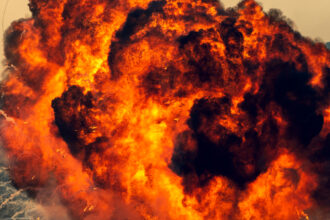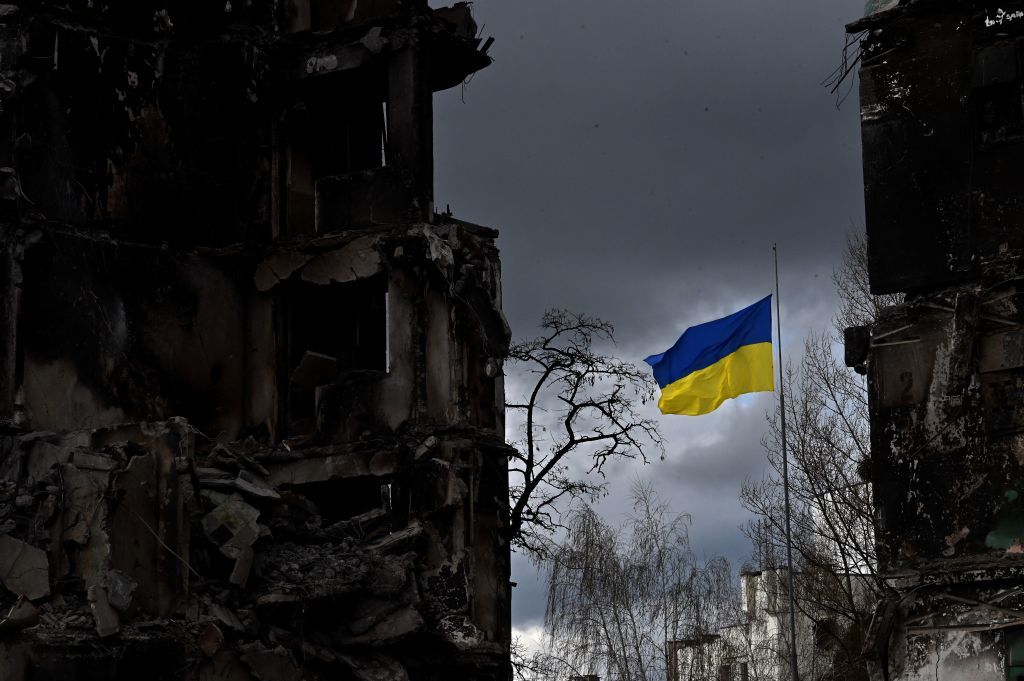**Russia’s War on Ukraine: A Metaphysical Struggle for Survival**
The ongoing conflict between Russia and Ukraine has deep philosophical roots. Former Russian president Dmitry Medvedev once said that he believed NATO would not intervene in the conflict, even if Russia used nuclear weapons on Ukraine. He based this assumption on a principle that the full sovereignty of a state depends on its citizens’ willingness to die for it.
**The Dialectic of Master and Servant**
Medvedev’s statement echoes the philosophical ideas of Georg Wilhelm Friedrich Hegel. In his book “Phenomenology of Spirit,” Hegel described a dialectic between two self-consciousnesses that engage in a life-or-death struggle. If both sides are willing to risk everything, neither can emerge as the victor – one dies, and the other lacks recognition.
**A Nuclear Confrontation**
However, as the Cold War taught us, in a nuclear confrontation, there are no winners – both sides perish. This understanding has profound implications for the ongoing conflict between Russia and Ukraine.
**Kaliningrad’s Connection to the War**
Anton Alikhanov, governor of the Russian exclave Kaliningrad, claimed that Immanuel Kant’s ideas were relevant to the war. He said that the conflict was a spiritual struggle for survival, pitting two mutually exclusive visions of what it means to be human.
**A New Kind of Spiritual Warfare**
Friedrich Nietzsche foresaw this kind of spiritual warfare in his book “Ecce Homo.” He wrote that when truth battles against lies, there will be shockwaves and upheavals like the world has never seen before. The concept of politics becomes entirely absorbed into the realm of spiritual warfare.
**A Total Eclipse of All Values**
Nietzsche also predicted the total eclipse of all values in the 21st century, alongside the emergence of barbaric nationalistic brotherhoods that aim to rob and exploit non-believers. This seems ironic, given that those who call for a return to traditional values are often the most ruthless.
**The Distinction Between Russia and Western Europe**
The key distinction between Russia and Western Europe lies in their perspectives on death. Russia claims it does not fear death, believing in a divine power that will redeem its people in the afterlife. In contrast, Western Europe operates with the knowledge that there is no higher guarantee – death is simply the end.
**Our Hope for Survival**
Our hope rests on the possibility that Russia’s proclaimed readiness to die is merely a bluff, part of a strategic façade. However, even a bluff can have real and dangerous consequences. The only God that seems fitting for our era is one of all-encompassing indifference, a concept that Clarice Lispector captures in her chilling description of such a deity.
This article was originally published by the Kyiv Independent, an independent online newspaper based in Ukraine. The opinions expressed are those of the authors and do not necessarily reflect the views of the Kyiv Independent.




